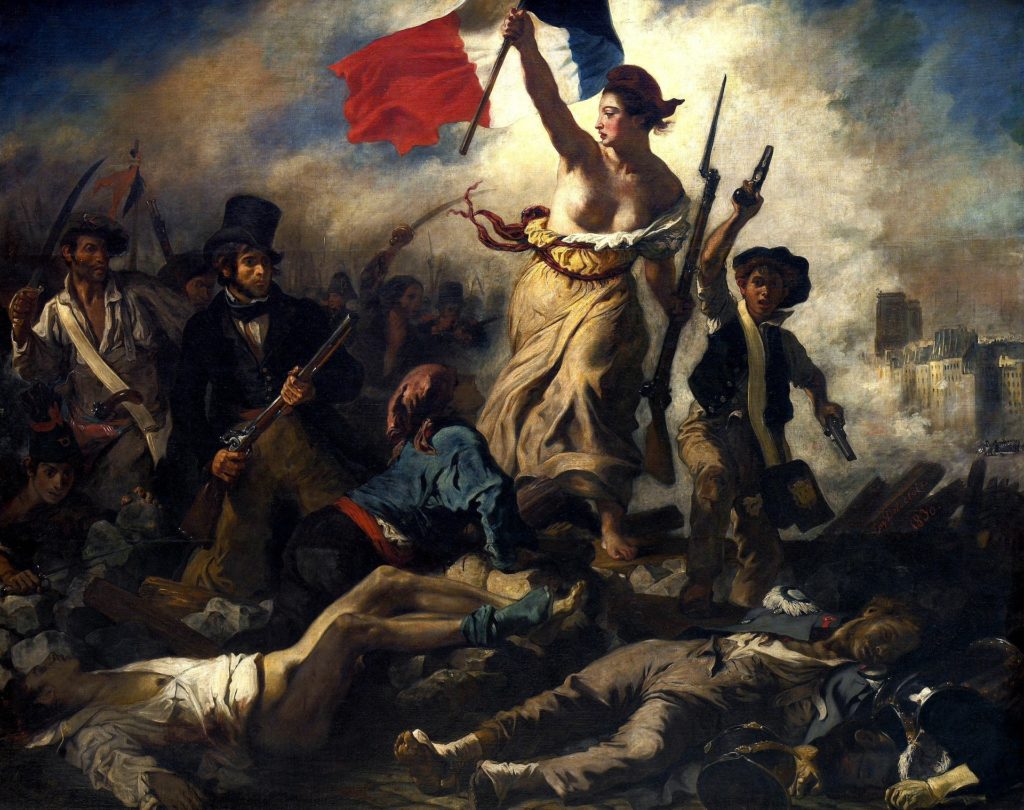
The French Revolution of 1789 obviously affected U.S. politics, as pro- and anti- Revolutionary factions sought to influence American domestic and foreign policy. When the first rumors of political change in France reached American shores in 1789, the U.S. public was largely enthusiastic. Americans hoped that the existing Franco-American alliance would be solidified by democratic reforms that would transform France into a republican ally against aristocratic and monarchical Britain. However, political instability and insane violence generated by the French Revolution frightened many Americans. Debates over the nature of revolutionary changes in France divided the political elite of the US into pro-French and pro-British fractions. Secretary of State Thomas Jefferson became the leader of the pro-French Democratic – Republican Party that supported all steps of the French Revolution. Secretary of the Treasury Alexander Hamilton led the Federalist Party, which viewed the Revolution with skepticism and tried to preserve existing commercial ties with Great Britain. President George Washington had to balance between the two most powerful members of his cabinet.
After French King Louis XVI was tried and executed on January 21, 1793, Great Britain and Spain joined anti-French coalition formed by Austria and other European powers in 1791. The United States remained neutral, because both Federalists and Democratic-Republicans saw that war would lead to economic disaster and the possibility of invasion.
In 1794, under Revolutionary Terror the French Government declared a state of emergency, and arrested several Americans residing in France as foreign citizens. Fortunately, thanks to efforts of American minister to France Gouverneur Morris none of them was executed.
Tensions between the US and revolutionary France started when the American Government refused to pay debts due to the French Monarchy and increased in 1794 after the signature of Anglo-American Jay Treaty which improved trade relations and settled controversies between the two nations.
In 1796 in retaliation for cooperation with Great Britain French Directory ordered to seize American merchant ships. In 1797 the Federalist John Adams elected President dispatched his envoys to settle this conflict. But French Foreign Minister Talleyrand sent his intermediaries to American agents asking them for a huge bribe for opening negotiations. Offended envoys refused and informed the President who started preparations for war with France. To take under control French political immigrants John Adams signed into law in 1798, the Alien and Sedition Acts consisting of four laws passed by the Federalist-controlled Congress. These acts increased the residency requirement for American citizenship from five to fourteen years, authorized the president to imprison or deport aliens considered “dangerous to the peace and safety of the United States” and restricted speech critical of the government. These laws were designed to silence and weaken the Democratic-Republican Party. Negative reaction to the Alien and Sedition Acts contributed to the Democratic-Republican victory in the 1800 elections, when Jefferson came to power.
Fortunately, the war between the US and France was never declared and remained in history under the name of the Quasi-War limited to the capture of a number of French ships by the US Navy. The peace was restored by Convention of 1800 also known as the Treaty of Mortefontaine. This document was signed by Napoleon Bonaparte whose reign put an end to the French Revolution.
*Sorry about the anachronism (picture taken from the 1830 revolution), it was the only one depicting “a french revolution”.